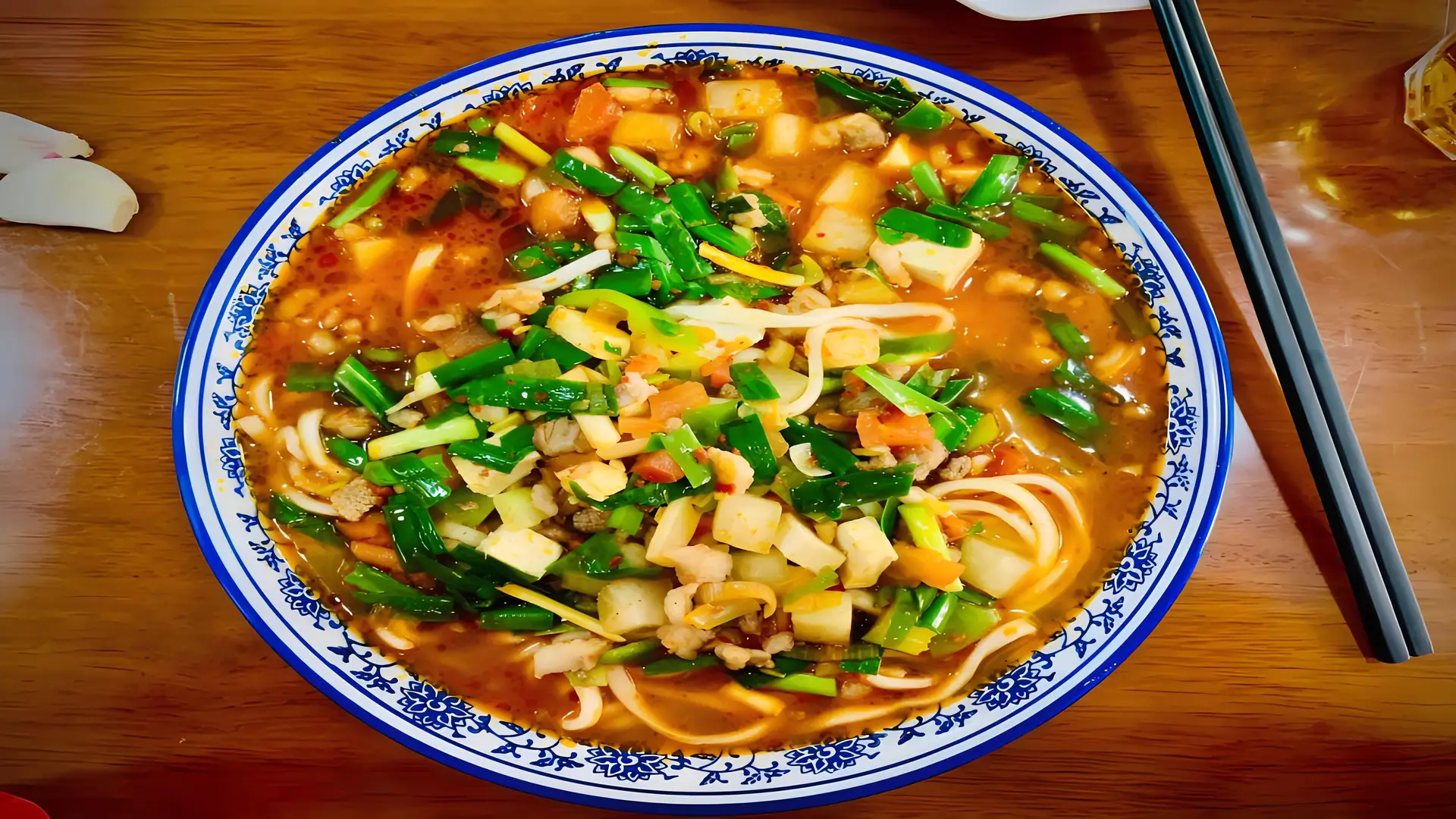Dunhuang의 소테 돼지 고기 국수 수프의 맛있는 여행
요리 전문가로서, I am thrilled to delve into the depths of one of the most cherished dishes from the ancient city of Dunhuang, located in Gansu Province, 중국. 이 요리, known as Dunhuang Sautéed Pork Noodle Soup, 또는 “臊子面” 중국어로, is not just a meal but a cultural experience that carries centuries of history and tradition.
**기원과 문화적 배경:**
The origins of 臊子面 can be traced back to the Han Dynasty, where it was a staple food for the locals. The dish has since evolved with time, and its preparation methods and ingredients have been refined to create the flavorful dish we know today. In Dunhuang, 臊子面 is not only a symbol of local cuisine but also a representation of the Silk Road’s culinary heritage. The dish is often associated with longevity, and it is believed that eating 臊子面 on special occasions brings good fortune and a long life, hence its nickname “Longevity Noodle.”
**성분과 준비:**
The heart of 臊子面 lies in its rich and savory sautéed pork, 또는 “臊子.” This is made by stir-frying finely diced pork with a medley of aromatics such as garlic, 생강, and green onions. The sautéed pork is then slow-cooked in a flavorful broth, which is typically seasoned with soy sauce, 쌀 와인, and a blend of traditional Chinese spices. The noodles, which are the canvas for this culinary masterpiece, are characterized by their width and chewiness. They are made from wheat flour, kneaded and stretched to achieve a perfect texture that complements the rich 臊子 sauce.
**질감과 외관:**
When served, 臊子面 is a feast for the eyes as well as the palate. The wide, ribbon-like noodles are arranged in a bowl, swimming in a rich, amber-colored broth that glistens with the essence of the slow-cooked 臊子. The dish is often garnished with fresh cilantro, thinly sliced chili peppers, and sometimes a sprinkle of toasted sesame seeds, adding a pop of color and a hint of spice. 프레젠테이션은 간단하지만 우아합니다, inviting you to embark on a journey of flavors with every bite.
**대표 요리 및 요리:**
While 臊子面 stands on its own as a complete meal, it can also be a part of various other dishes. 예를 들어, it can be served as a base for a hearty stew, with additional vegetables or proteins added according to personal preference. It can also be paired with cold dishes like pickled vegetables or spicy cucumber salad, providing a contrast in temperature and flavor.
**요리 특성:**
The beauty of 臊子面 lies in its balance of flavors. The chewy noodles provide a satisfying texture that holds up well to the robust 臊子 sauce. The sautéed pork is tender and flavorful, with a depth of taste that comes from slow cooking. The broth is rich and savory, with a hint of sweetness from the caramelization of the pork and a touch of spiciness that warms the palate without overpowering it. Each component works in harmony to create a dish that is both comforting and invigorating.
결론적으로, Dunhuang’s 臊子面 is more than just a dish; it is a celebration of the region’s culinary history and a testament to the ingenuity of its people. 식품 실무자로서, I am honored to share this dish with the world, inviting everyone to savor the flavors of Dunhuang and embrace the cultural significance that comes with every bowl of 臊子面.
